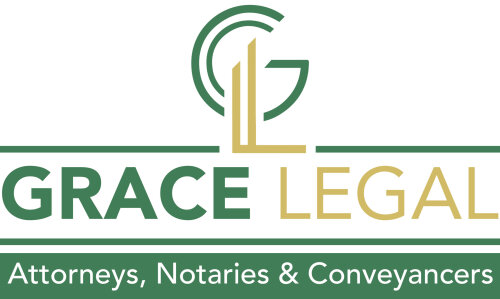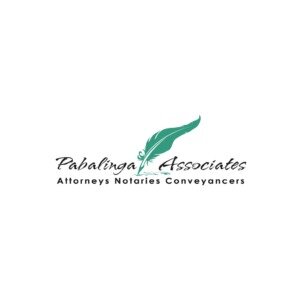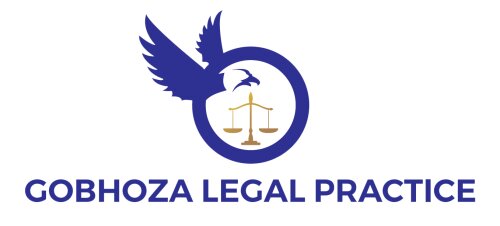Best Tax Increment Financing Lawyers in Botswana
Share your needs with us, get contacted by law firms.
Free. Takes 2 min.
Or refine your search by selecting a city:
List of the best lawyers in Botswana
About Tax Increment Financing Law in Botswana
Tax Increment Financing (TIF) is a public financing method that is used as a subsidy for redevelopment, infrastructure, and other community-improvement projects in Botswana. The framework allows municipalities to stimulate economic development by capturing the future tax benefits of real estate improvements in designated areas. This method is primarily employed to support public and private investment in underdeveloped areas by leveraging anticipated increases in property tax revenues to fund present-day developments.
Why You May Need a Lawyer
Legal assistance might be necessary in several scenarios involving Tax Increment Financing in Botswana, including:
- Negotiating terms of TIF agreements between developers and municipalities.
- Understanding and navigating the legislative and regulatory requirements of TIF structures.
- Resolving disputes related to the implementation of TIF projects.
- Assisting in compliance with reporting and financial obligations associated with TIF-funded projects.
- Advising on the environmental and social impacts of TIF-funded developments.
Local Laws Overview
The local laws regarding Tax Increment Financing in Botswana are designed to facilitate economic development while ensuring transparent and accountable use of public funds. Key aspects include:
- Eligibility criteria for areas and projects to be financed through TIF.
- Approval processes involving local government authorities and relevant stakeholders.
- Regulations concerning the allocation and management of tax-generated revenue increments.
- Legal obligations concerning fiscal reporting and auditing of TIF projects.
- Provisions related to community involvement and feedback in the commercialization of TIF projects.
Frequently Asked Questions
What is the purpose of Tax Increment Financing in Botswana?
TIF aims to stimulate economic activity in areas that are underdeveloped or neglected by financing improvements and redevelopment projects, thereby increasing property values and tax revenues that benefit the community.
Who can initiate a Tax Increment Financing project?
TIF projects can be initiated by local government authorities or private developers in collaboration with municipalities, depending on the regulatory framework of the region.
What types of projects can benefit from TIF?
Common projects include infrastructure improvements, commercial and industrial developments, housing projects, and other ventures that might attract more investment and enhance local economic conditions.
How are TIF funds generated?
TIF funds are generated through the incremental increase in property taxes that are collected post-development, which would not occur without the improvement project.
Are there risks associated with TIF projects?
Yes, potential risks include over-reliance on projected tax increments for funding, displacement of existing communities, or unmet development expectations affecting revenue projections.
How does TIF affect local taxpayers?
Local taxpayers may benefit from improved infrastructure and services, but they should be informed about any potential long-term commitments or liabilities related to TIF projects.
What are the legal requirements for implementing a TIF district?
The legal requirements typically include feasibility studies, public consultations, and approval from relevant municipal councils and government agencies.
Can TIF funds be used for maintenance expenses?
TIF funds are generally not used for ongoing operating or maintenance expenses; they are earmarked for capital improvements directly associated with the approved project.
Is there a duration limit for TIF projects?
Yes, TIF projects often have a set duration during which the funding mechanism operates, after which the increment in tax revenue returns to the general pool.
How can communities have a say in TIF project decisions?
Communities can participate in consultations and hearings during the proposal and implementation phases and provide feedback to local authorities and developers on TIF projects.
Additional Resources
For individuals seeking further information or assistance on Tax Increment Financing in Botswana, consider the following resources:
- Ministry of Local Government and Rural Development
- Botswana Investment and Trade Centre (BITC)
- Local municipality offices
- Botswana Unified Revenue Service (BURS)
- Professional organizations like the Botswana Institute of Chartered Accountants (BICA)
Next Steps
If you require legal assistance with Tax Increment Financing in Botswana, here are some steps to consider:
- Consult a legal professional specializing in property and finance law to understand the specifics of your case.
- Reach out to local government offices or legal aid clinics for guidance on the framework governing TIF projects.
- Gather all pertinent documents, including feasibility studies, drafts of agreements, and correspondence with involved parties.
- Consider engaging in community forums or consultations to gain insights into stakeholders' perspectives and potential issues.
- Stay informed about changes in legislation that may affect TIF practices by regularly checking government bulletins and updates.
Lawzana helps you find the best lawyers and law firms in Botswana through a curated and pre-screened list of qualified legal professionals. Our platform offers rankings and detailed profiles of attorneys and law firms, allowing you to compare based on practice areas, including Tax Increment Financing, experience, and client feedback.
Each profile includes a description of the firm's areas of practice, client reviews, team members and partners, year of establishment, spoken languages, office locations, contact information, social media presence, and any published articles or resources. Most firms on our platform speak English and are experienced in both local and international legal matters.
Get a quote from top-rated law firms in Botswana — quickly, securely, and without unnecessary hassle.
Disclaimer:
The information provided on this page is for general informational purposes only and does not constitute legal advice. While we strive to ensure the accuracy and relevance of the content, legal information may change over time, and interpretations of the law can vary. You should always consult with a qualified legal professional for advice specific to your situation.
We disclaim all liability for actions taken or not taken based on the content of this page. If you believe any information is incorrect or outdated, please contact us, and we will review and update it where appropriate.
Browse tax increment financing law firms by city in Botswana
Refine your search by selecting a city.















